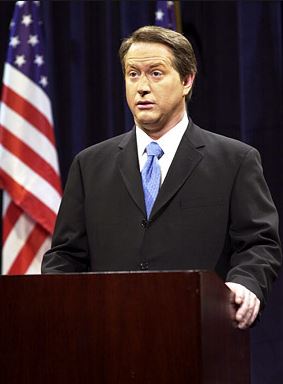
Sarcasm comes from a place of sadness. It is a realization that man is thus, and should not be. Showing this incongruity with sarcasm speaks truth in a quicker and more effective way than mere exposition can. There were lots of editorials leading up to the 2000 presidential election between George W. Bush and Al Gore which accused the first of being anemic of facts and critical skills, and the second of being a dull ideologue. But no one made the point better than Saturday Night Live. In a sketch parodying their presidential debates, the first summed up his political ideas with the non-word “strategery,” and the second with the pedantic “lockbox.” It changed the election. One could read a 5 page article in Conde Nast Traveler about the decline in hotel services, or one could read this line from Fran Lebowitz: “In most hotels ‘24 Hour Room Service’ refers to the time it takes for the club sandwich to arrive after you’ve ordered it.”
In the West we have a long tradition of sarcasm reaching back as far as Aristophanes, through Juvenal, Cervantes, Jonathan Swift, Mark Twain, Will Rogers, and Art Buchwald, to Johnny Carson, John Stuart, and Stephen Colbert. I believe such a tradition makes our culture stronger. In the Religion & Culture class I teach I always highlight this tradition of sarcasm. We read “A Modest Proposal,” or watch an episode of M*A*S*H. If we have time we watch both Dr. Strangelove, and Fail Safe – films released the same year and based on the same book – to determine which one is the more effective challenge to America’s nuclear policy. The answer is obvious –it is the farce, not the serious drama.
Jesus uses this kind of humor at times, although we often miss it in the penumbra of His halo. The absurdity of the man with the beam in his eye taking the speck out of another’s eye is sarcasm (Matthew 7.3-5). So is the “strain out a gnat but swallow a camel” statement He makes about the scribes and Pharisees (Matthew 23.24). Then there is the bit about all prophets dying in Jerusalem (Luke 13.33), which is the most acerbic line He ever delivers. The last two passages end with Jesus weeping for Jerusalem, which tells us His humor comes from a place of love and sadness, not of anger.
This distinction is important because what we say must be edifying or not said at all (Colossians 4.6, I Corinthians 14.26). Jesus forbids hate speech (Matthew 5.21-22). Sarcasm can be edifying, meanness can never be.
The French newspaper Charlie Hebdo is not published to edify. It intends to insult. It especially targets religions, and reportedly makes more offensive attacks on Christianity than the photographs Andres Serrano famously exhibited in 1987 (look that up online if you want more information). Although disciples of Jesus, more than any other group, should know the depth of evil involved in the terrorist attack on the office of Charlie Hebdo a few weeks ago, disciples of Jesus would never carry a sign, or tweet, or post Je Suis Charlie with the rest of the Western world. We share no solidarity with purveyors of anger, hate, and disrespect.
We believe in free will. We thus believe in a free exchange of ideas. We believe that the Gospel will win in the marketplace of ideas. But we do not believe that meanness is ever a way to communicate truth. Truth must be spoken in love or not at all (Ephesians 4.15).